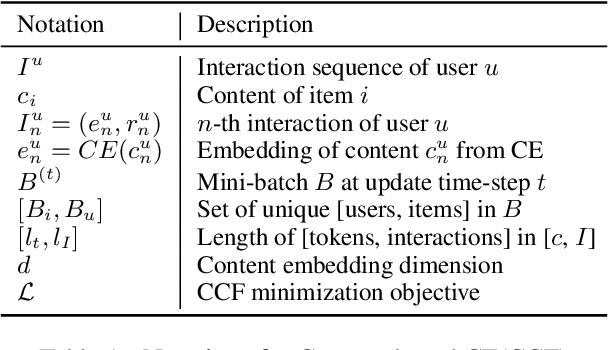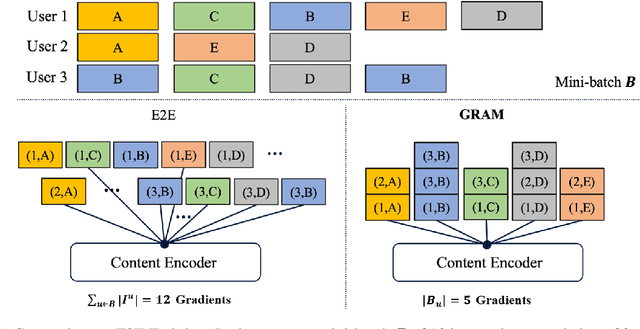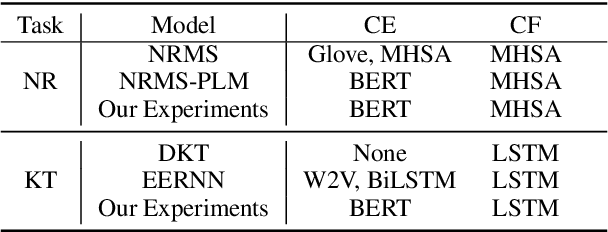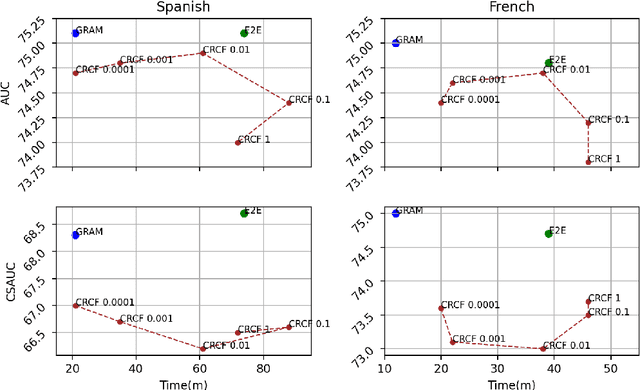Minsam Kim
Evaluating the Knowledge Dependency of Questions
Nov 21, 2022Abstract:The automatic generation of Multiple Choice Questions (MCQ) has the potential to reduce the time educators spend on student assessment significantly. However, existing evaluation metrics for MCQ generation, such as BLEU, ROUGE, and METEOR, focus on the n-gram based similarity of the generated MCQ to the gold sample in the dataset and disregard their educational value. They fail to evaluate the MCQ's ability to assess the student's knowledge of the corresponding target fact. To tackle this issue, we propose a novel automatic evaluation metric, coined Knowledge Dependent Answerability (KDA), which measures the MCQ's answerability given knowledge of the target fact. Specifically, we first show how to measure KDA based on student responses from a human survey. Then, we propose two automatic evaluation metrics, KDA_disc and KDA_cont, that approximate KDA by leveraging pre-trained language models to imitate students' problem-solving behavior. Through our human studies, we show that KDA_disc and KDA_soft have strong correlations with both (1) KDA and (2) usability in an actual classroom setting, labeled by experts. Furthermore, when combined with n-gram based similarity metrics, KDA_disc and KDA_cont are shown to have a strong predictive power for various expert-labeled MCQ quality measures.
GRAM: Fast Fine-tuning of Pre-trained Language Models for Content-based Collaborative Filtering
Apr 08, 2022



Abstract:Content-based collaborative filtering (CCF) provides personalized item recommendations based on both users' interaction history and items' content information. Recently, pre-trained language models (PLM) have been used to extract high-quality item encodings for CCF. However, it is resource-intensive to finetune PLM in an end-to-end (E2E) manner in CCF due to its multi-modal nature: optimization involves redundant content encoding for interactions from users. For this, we propose GRAM (GRadient Accumulation for Multi-modality): (1) Single-step GRAM which aggregates gradients for each item while maintaining theoretical equivalence with E2E, and (2) Multi-step GRAM which further accumulates gradients across multiple training steps, with less than 40\% GPU memory footprint of E2E. We empirically confirm that GRAM achieves a remarkable boost in training efficiency based on five datasets from two task domains of Knowledge Tracing and News Recommendation, where single-step and multi-step GRAM achieve 4x and 45x training speedup on average, respectively.
 Add to Chrome
Add to Chrome Add to Firefox
Add to Firefox Add to Edge
Add to Edge